
Following the recent political transition in Syria, international attention has shifted toward domestic developments, leaving tens of thousands in northern camps without adequate humanitarian aid.
The ongoing conflict in Syria, which has now lasted for more than a decade, has had a profound impact on the lives of millions of people. With the regime change just before the end of 2024, all eyes have now turned to developments inside the country. As a result, support for the camps in the north, where tens of thousands of people of all ages live, has drastically decreased. Mukawama Camp, one of the largest, has reported significant challenges, including extreme cold, food insecurity, lack of shelter, and limited access to clean water, affecting over 20,000 residents, particularly children.
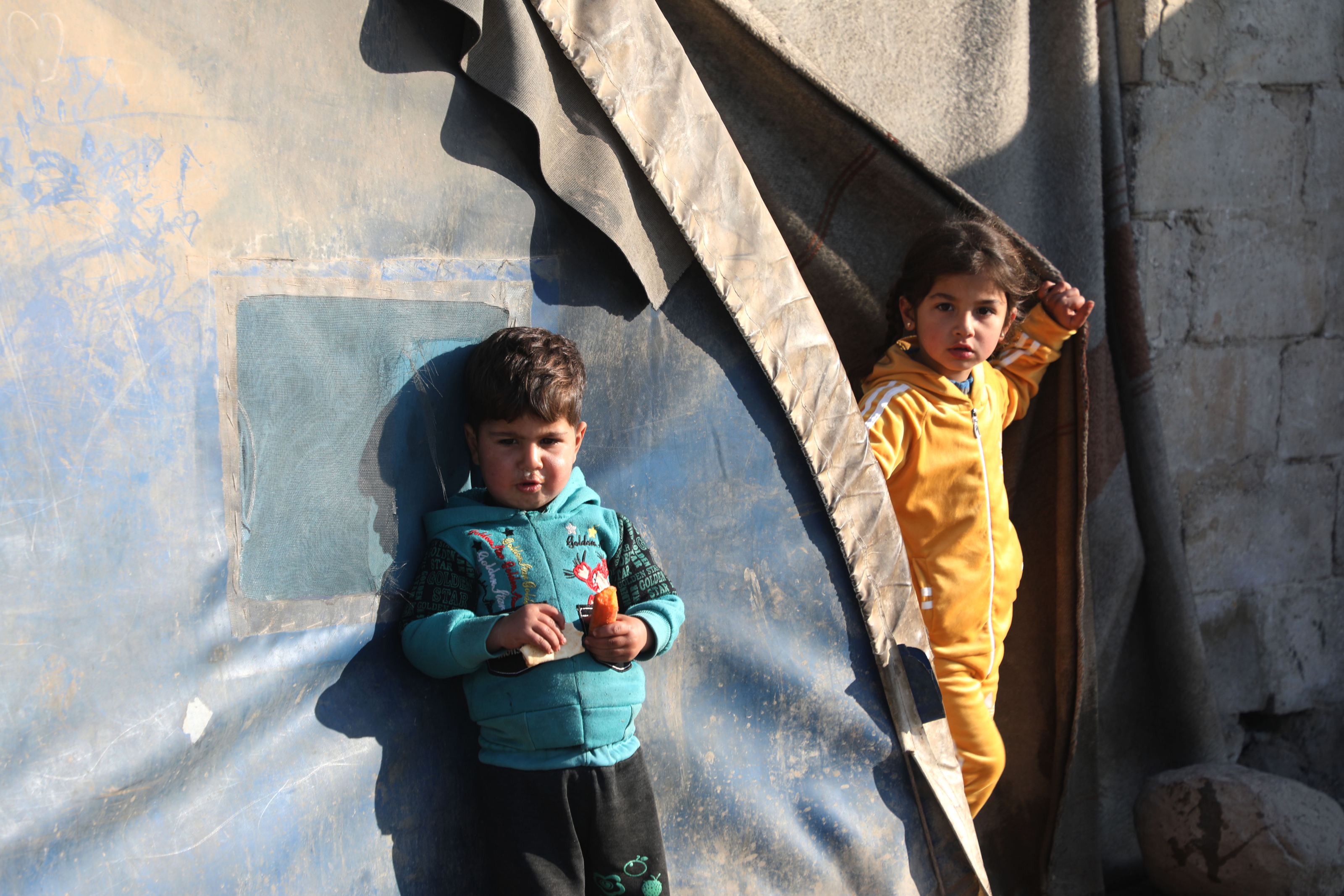 |
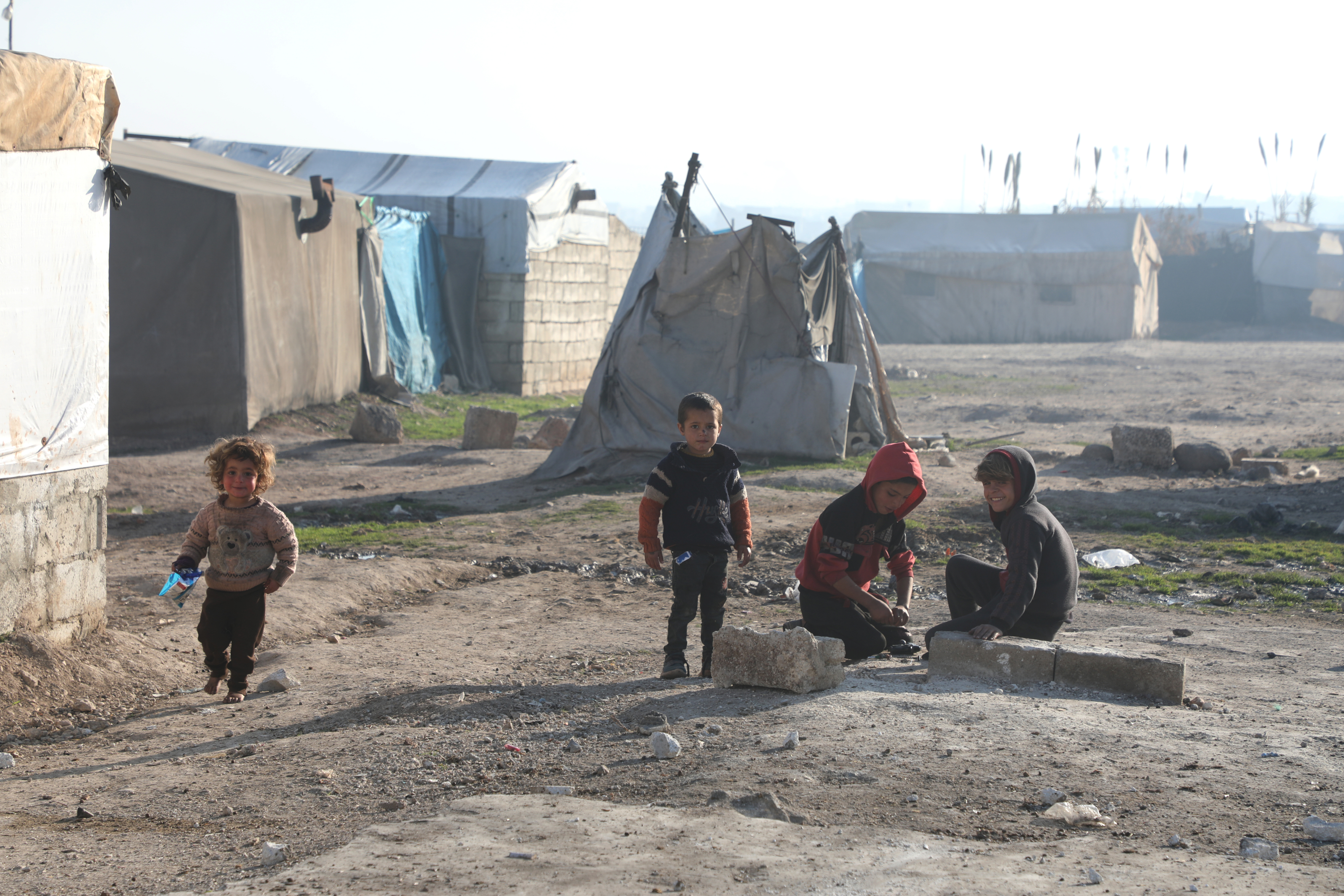 |
In light of the recent regime change, supporting these camps, which current relief cannot reach, is of even greater importance. Meeting the need for shelter and access to clean water is one of the most urgent priorities. Many people's homes have been destroyed or require renovation to make them habitable. However, the profound political change in the country has led to a complete shift of attention away from the camps.
To provide assistance to the camps in the north that are struggling to survive, our Foundation is collaborating with IDRF Canada and Episcopal Relief & Development to provide a safe living space for those in need in the region. As part of the construction project we are implementing for hundreds of earthquake-affected families living in the camps in the Ahtarin region, we are building housing and community centres. The aim is to provide a safe living environment for families, with earthquake-resistant buildings planned to be completed in May.
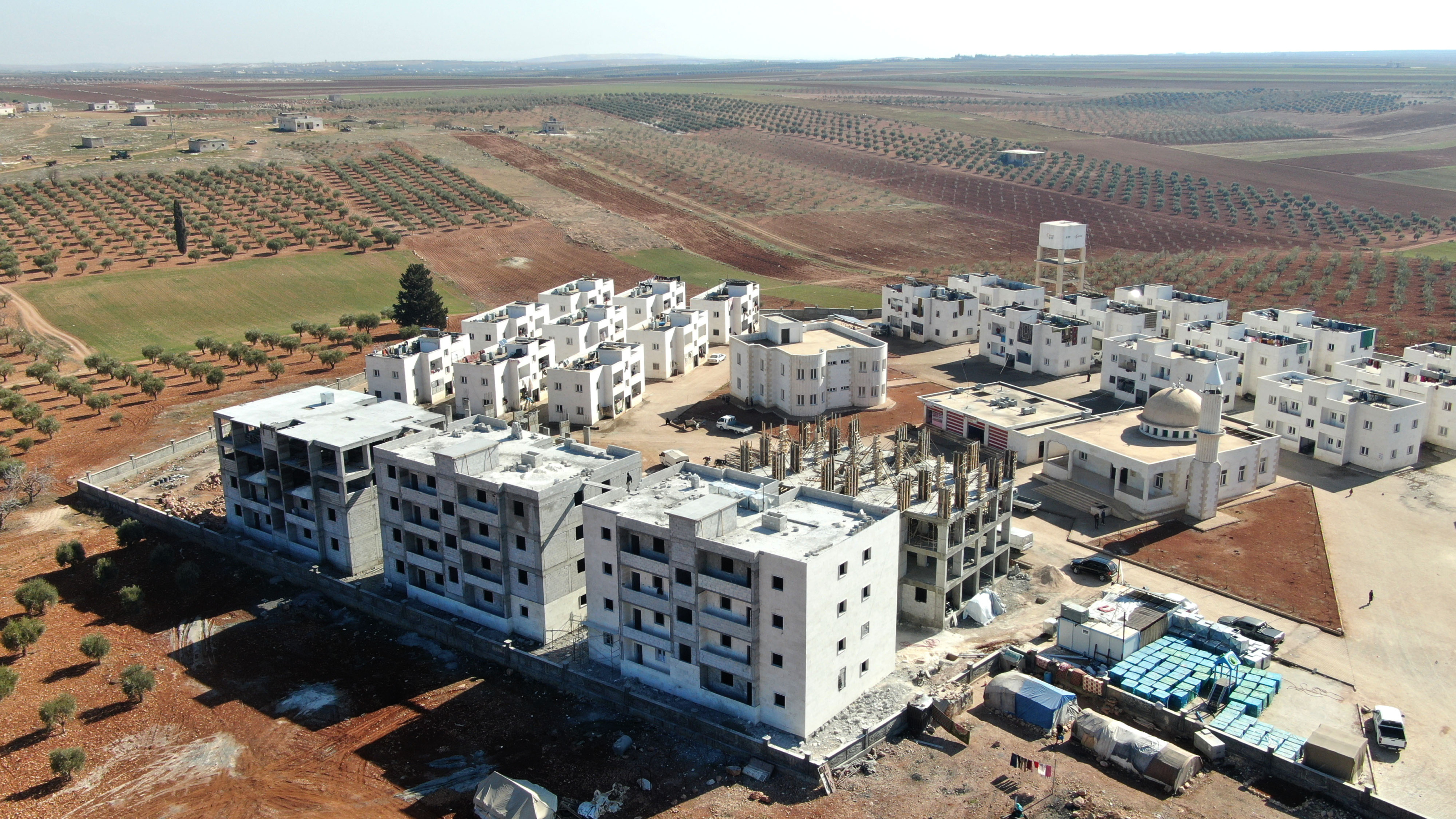 |
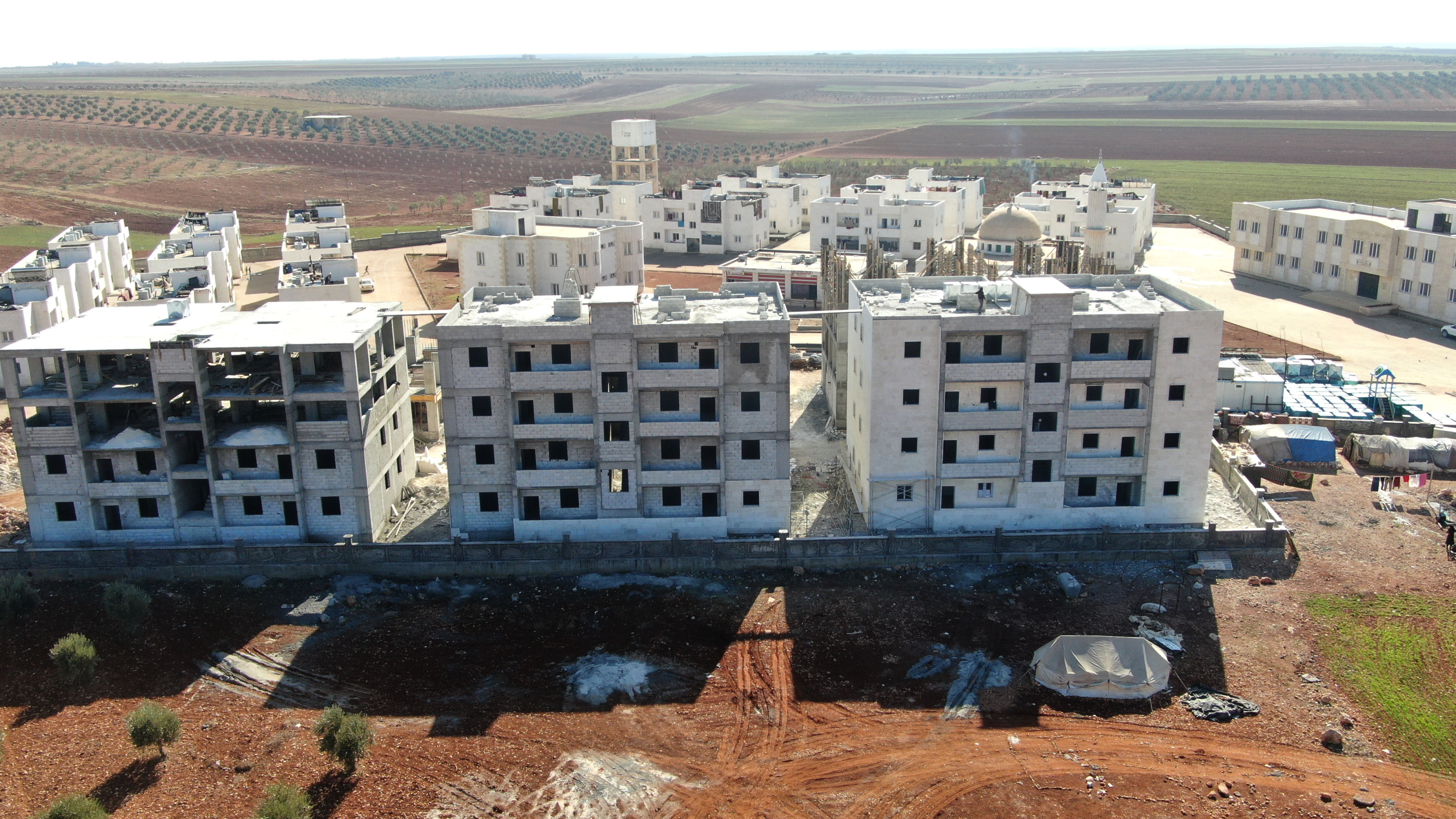 |
Our work in Syria is centered on addressing fundamental humanitarian needs. On 6 February, the severe earthquakes that struck our country, affecting 11 provinces, resulted in the collapse of numerous buildings and the disruption of water tanks, with even the water network in North of Syria being impacted. This led to disruption of sanitation services and serious difficulties in accessing clean water. To provide a lasting solution, In collaboration with AFAD, we inaugurated a 100-cubic-meter water tank in Soran, rehabilitating critical infrastructure, and launched a solar energy project to provide clean energy to the water pumping stations. In addition, we have repaired the earthquake-damaged water tank in Soran and drilled a water well, providing access to clean water to approximately 35,000 people daily.
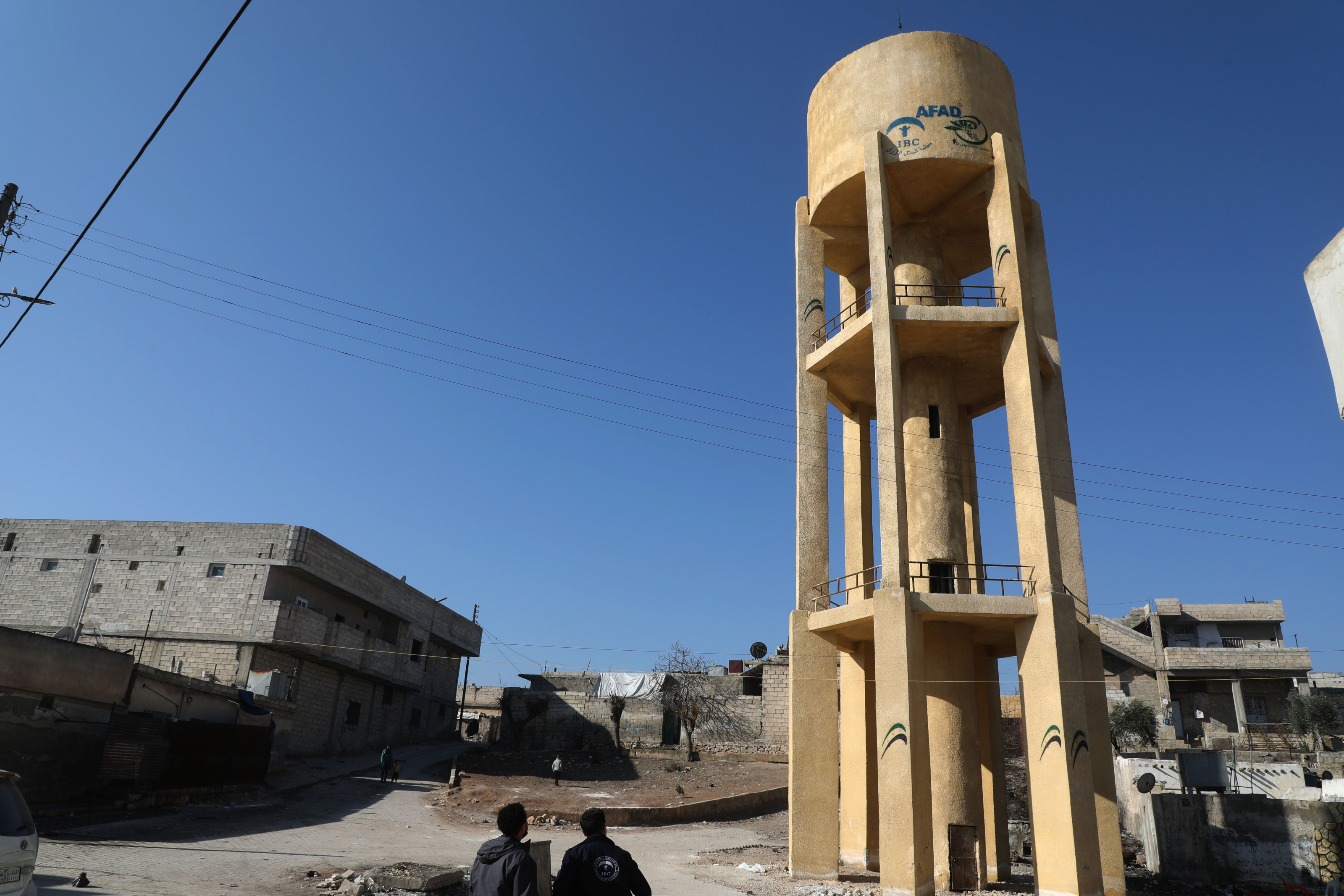 |
Finally, in collaboration with IDRF Canada, we have started the preparation process for a project to strengthen emergency medical response and surgical capacity in Azaz, prioritizing life-saving care. Our primary goal is to provide support to the emergency and operating theatre departments.